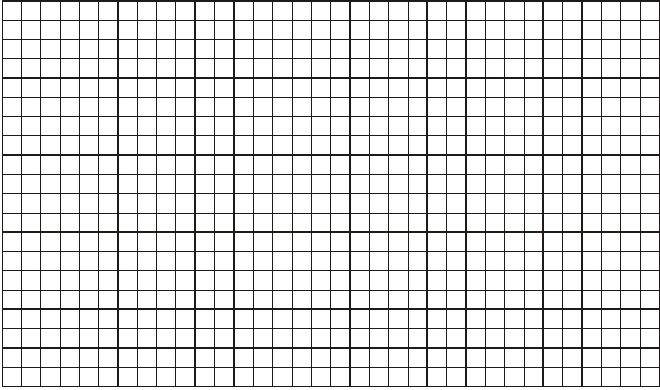
CATEGORIES:
BiologyChemistryConstructionCultureEcologyEconomyElectronicsFinanceGeographyHistoryInformaticsLawMathematicsMechanicsMedicineOtherPedagogyPhilosophyPhysicsPolicyPsychologySociologySportTourism
STUDY OF PHOTOELECTRIC EXTERNAL EFFECT DETERMINATION of PLANCKíS CONSTANT by RETARDING FIELD METHOD
| The purpose of the work: - to study photoelectric external effect laws; - to measure retarding field at different values of falling light frequency; - to calculate Planckís constant, electron work function, photoelctric threshold for given photocathode | Devices and accessories: 1. optical bench; 2. vacuum photosensitive device —÷¬-4; 3. source of light with changeable light filters; 4. direct current battery; 5. potentiometer; 6. switch; 7. digital devices Ŕ431« ≥ Ŕ4316 for voltage and current measurement |
Task 1. Measurement of stopping potential
1.1. Measure stopping potential at different values of falling light frequency. Enter the results into table 1. Table 1
| Light filters color | U, V | 0,00 | 0,05 | 0,10 | 0,15 | 0,20 | 0,25 | 0,30 | 0,35 | 0,40 | 0,45 | 0,50 | 0,55 | 0,60 | 0,65 |
| Orange λ = __________m | ≥, μņ | ||||||||||||||
| Yellow λ = _________ m | ≥, μņ | ||||||||||||||
| Green λ = _________ m | ≥, μņ | ||||||||||||||
| Blue λ = _________ m | ≥, μņ | ||||||||||||||
| Violet λ = _________ m | ≥, μņ |
Task 2. Plot graphs of functions  for each light filter.
for each light filter.
Task 3. Determine stopping potential  for each light filter by extrapolation of straight line part of the graph to the its intersection with axis őX.
for each light filter by extrapolation of straight line part of the graph to the its intersection with axis őX.
Task 4. Plot the graph of function  .
.
Task 5. Planckís constant determination
5.1. Determine Planckís constant using the graph of function  and according to the formula:
and according to the formula:
 where
where 
5.2. Enter the results into table 2.
5.3. Determine deviation of measured value of Planckís constant from theoretical one:


Table 2
| Light filter color | n, Hz |  V V
| Planckís constant, h, J∙s | Deviation of measured value from theoretical one | Work function,  J J
| Photoelectric threshold  , Hz , Hz
|
| Orange | ||||||
| Yellow | ||||||
| Green | ||||||
| Blue | ||||||
| Violet |
Task 6. Determine work function  and photoelectric threshold
and photoelectric threshold  for given photocathode using graph of function
for given photocathode using graph of function  and formulae:
and formulae:

 .
.
Enter the results into table 2.
Task 7. Determine photoelectric threshold  for elements with known work function and plotted graph
for elements with known work function and plotted graph  Enter the results into table 3.
Enter the results into table 3.
Table 3
| Element |  ŚV ŚV
|  , Hz , Hz
| Element |  ŚV ŚV
|  , Hz , Hz
|
| Caesium | 1,9 | Potassium | 2,2 | ||
| Natrium (sodium) | 2,3 | Calcium | 2,7 |


Conclusions
The data of laboratory work fulfilment
Pass mark Signature
 Mark of laboratory work defence Signature
Mark of laboratory work defence Signature
questions to be admitted for doing laboratory work and its defending
1. What is photoelectric effect?
2. What types of photoeffect do you know?
3. What regularities of photoeffect do you know?
4. What is the essence of photo-electric effect theory?
5. Write down Einsteinís equation for photoeffect and explain it.
6. Formulate external photoelectric effect laws.
7. What is the essence of quantum theory of light?
8. What is photon? Write down its characteristics.
9. What is electron work function?
10. What is stopping potential?
11. What does stopping potential depend on?
12. What is photoelectric threshold?
13. What does photoelectric threshold depend on?
14. Application of photo-electric effect in science and technique.
15. Structure and operation principle of photocell. Integral and spectral sensitiveness of photoeffect.
16. What do energy and speed of electron flown out from photocathode depend on?

LABORATORY WORK
Date: 2015-01-12; view: 2084
| <== previous page | | | next page ==> |
| STUDY OF THERMAL RADIATION LAWS DETERMINATION OF STEFAN CONSTANT | | | STUDY OF HYDROGEN ATOM SPECTRUM RYDBERGíS CONSTANT DETERMINATION |